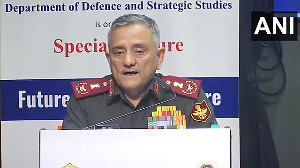The government has set up an inter-ministerial group to examine the criticisms levelled by industry and other interest groups against the proposed Communications Convergence Bill.
The group, comprising secretaries of communication, information technology, information and broadcasting, finance, law and home, will also study the recommendations made by the standing committee on information technology about the Bill.
Senior officials in the department of telecommunications told Business Standard that the standing committee had suggested as many as 90 amendments to the Bill.
These needed to be analysed to assess the impact of the provisions on the infotech and telecommunications industries. The Bill is expected to be placed in Parliament in the monsoon session.
The Bill envisages setting up a Communications Commission of India as a super regulator, which will be responsible for assigning spectrum for non strategic and commercial uses.
As per the Bill, the commission has been empowered to ensure competition and prevention of monopoly by specifying restrictions regarding ownership and control of media.
The Communications Commission of India will replace the Telecom Regulatory Authority of India, the Telecom Dispute Settlement and Appellate Tribunal, the Prasar Bharti, the Wireless and Planning Committee.
However, when it comes to policy matters, the super regulator will only have recommendatory powers, based on government recommendations, with the central government making the final decision on policies.
The Bill provides for four categories of licences. The first category called network infrastructure, includes facilities such as earth stations, cable infrastructure, wireless equipment, towers, posts, ducts and pits used in conjunction with other communication infrastructure.
The second category called networking services, will be for bandwidth services, fixed line and mobile services.
The third category, called network application services, will cover public switched telephony, public cellular telephony, global mobile satellite communication, infotech telephony, radio paging services and radio and television broadcasting services.
The fourth set will cover satellite broadcasting, subscription broadcasting, terrestrial free-to-air television broadcasting and terrestrial radio broadcasting.
However, as per the Bill, to offer services like infotech-enabled services, e-commerce, tele-banking, tele-education, tele-trading, tele-medicine, video tax services and video conferencing services will not require a licence.





